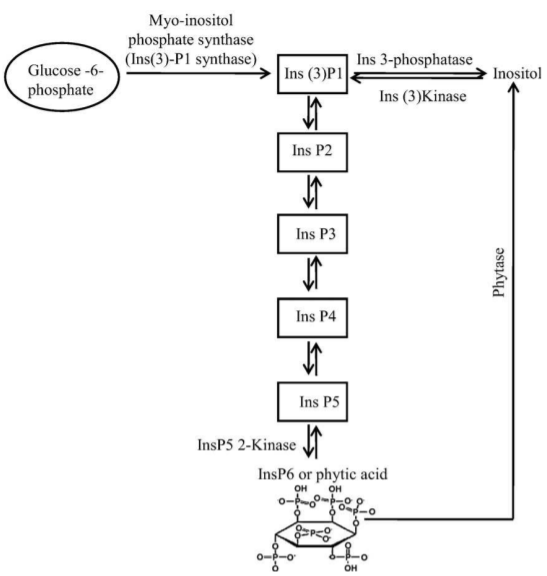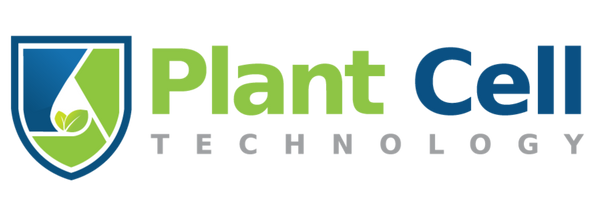Table of Contents
Overview
Often during studying a tissue culture procedure for a plant, you would have come across the name “Myo-inositol.”
Did you ever wonder what it is and why do you need it in your tissue culture processes? What roles does it play in plants and why is it such an important component of tissue culture?
If not! No biggie!
Because, this article introduces you well to the compound “Myo-inositol” and describes its synthesis, essential roles in plants, and uses in tissue culture.
What is Myo-inositol?
Myo-inositol is simply known as "sugar" or ”sugar-like carbohydrate”.
Chemically, Myo-inositol (or inositol) is a carbocyclic sugar. It is produced by both mammals and plants, because of its diverse functions in these living beings.
In plants, Myo-inositol has roles in the growth and development of plants, including cell wall biosynthesis, stress response, phosphate storage, Osmo tolerance, cell to cell communication, and storage and transport of plant growth regulators (PGRs) or plant hormones.
Looking to purchase Myo-inositol for your tissue culture processes? Plant Cell Technology is offering a steal deal of 20% off the purchase of its 100 grams of Myo-inositol—offer valid for a limited period of time.
What is the importance of Myo-inositol in plants?
Biosynthesis of the Plant Cell Wall: Polysaccharides are one of the vital components of the plant cell wall. A long chain of sugar is synthesized to form this outer layer. And, an oxidized form of inositol is the most common and one of the most essential sugars that form the cell wall of plant cells.
It serves as a precursor for uronic acid and pentose of cell-wall polysaccharides. Many inositol-derived sugars play important functional roles in cellular metabolism, storage, and transport.
Salt Tolerance: Inositol and related molecules protect plants from salt stress in two ways:
- Defend cellular structures against reactive oxidizers such as hydrogen peroxide.
- Controls water pressure inside cells.
Phosphate Storage: Plant seeds act as a nutrient reserve for the early growth of seedlings. One such storage component is phosphate.
Phosphate is an essential element involved in the growth and development of plants. They are stored in plant cells (in cellular organelles, called globoids) in the form of inositol hexaphosphate (IP6), which is involved in the process of protein synthesis in plants.
Cell to Cell communication: Chemical molecules are required to relay the communication signals throughout the plant cells. And, Myo-inositol is one such chemical component that has an essential function in the PI pathway of plants.
The pathway works in response to gravitropic pulls (plant's ability to grow downwards in response to gravity) and changes in pressure within leaf pores that regulate wilting.
Storage and Transport of Plant Hormones: Plant hormones are required to regulate the proper growth and development of plants. Therefore, it is necessary for plants to store the hormone precursors in an inactive state in order to synthesize hormones when needed.
Myo-inositol is involved in the storage and transport of the auxin (IAA) hormone. It links with the auxin-forming hormone conjugates and regulates its availability for a spectrum of physiological responses.
Looking to purchase Myo-inositol for your tissue culture processes? Plant Cell Technology is offering a steal deal of 20% off the purchase of its 100 grams of Myo-inositol—offer valid for a limited period of time.
How Myo-inositol is Synthesized in Plants?
Myo-inositol is synthesized from glucose. Glucose is converted into glucose six phosphate, which in the presence of the enzyme Myo-inositol phosphate synthase is converted to Myo-inositol 3-phosphate (Ins(3)P).
Myo-inositol-3-phosphate is the first precursor formed during the synthesis of Myo-inositol (also known as inositol hexaphosphate or phytic acid). It is then converted into phytic acid via sequential phosphorylation by two or more kinases.
Phytic acid is the major storage form of phosphate in plants and is found in cereals and legumes grains, tubers, pollen, spores, nuts, oilseeds, and organic soil.

Figure: A schematic diagram of Myo-inositol biosynthesis in plants.
How Myo-inositol is Used in Tissue Culture?
My-inositol is one of the key components of tissue culture media. Several studies have shown its importance in cell division and plant regeneration during the tissue culture of plants. As the plants grow, they facilitate the process of cell wall synthesis, cell communication, IAA (indole acetic acid) metabolism, and phosphate storage.
Further, it should also be noted that they are not required in all the tissue culture of all plants, but might hold immense importance for some.
Looking to purchase Myo-inositol for your tissue culture processes? Plant Cell Technology is offering a steal deal of 15% off the purchase of its 100 grams of Myo-inositol—offer valid for a limited period of time.
Why is PCT the Best Choice for all Your Tissue Culture Needs?
Plant Cell Technology is a one-stop store for all tissue culture requirements. It has an extensive portfolio of products, ranging from MS media, agar, gellan gum, BiocouplerTM, culture vessels, and plant growth hormones including Myo-inositol.
The trademark product “PPM—plant preservative mixture” is the sole effective available solution for the prevention of contamination at all stages of tissue culture. Additionally, it offers on-site and off-site tissue culture consulting services for cannabis and other plants.
At the moment, PCT is offering unbeatable deals on its wide range of products, including:
Happy Culturing!!

Source: Giphy














Join the conversation
Your email address will not be published. Required fields are marked